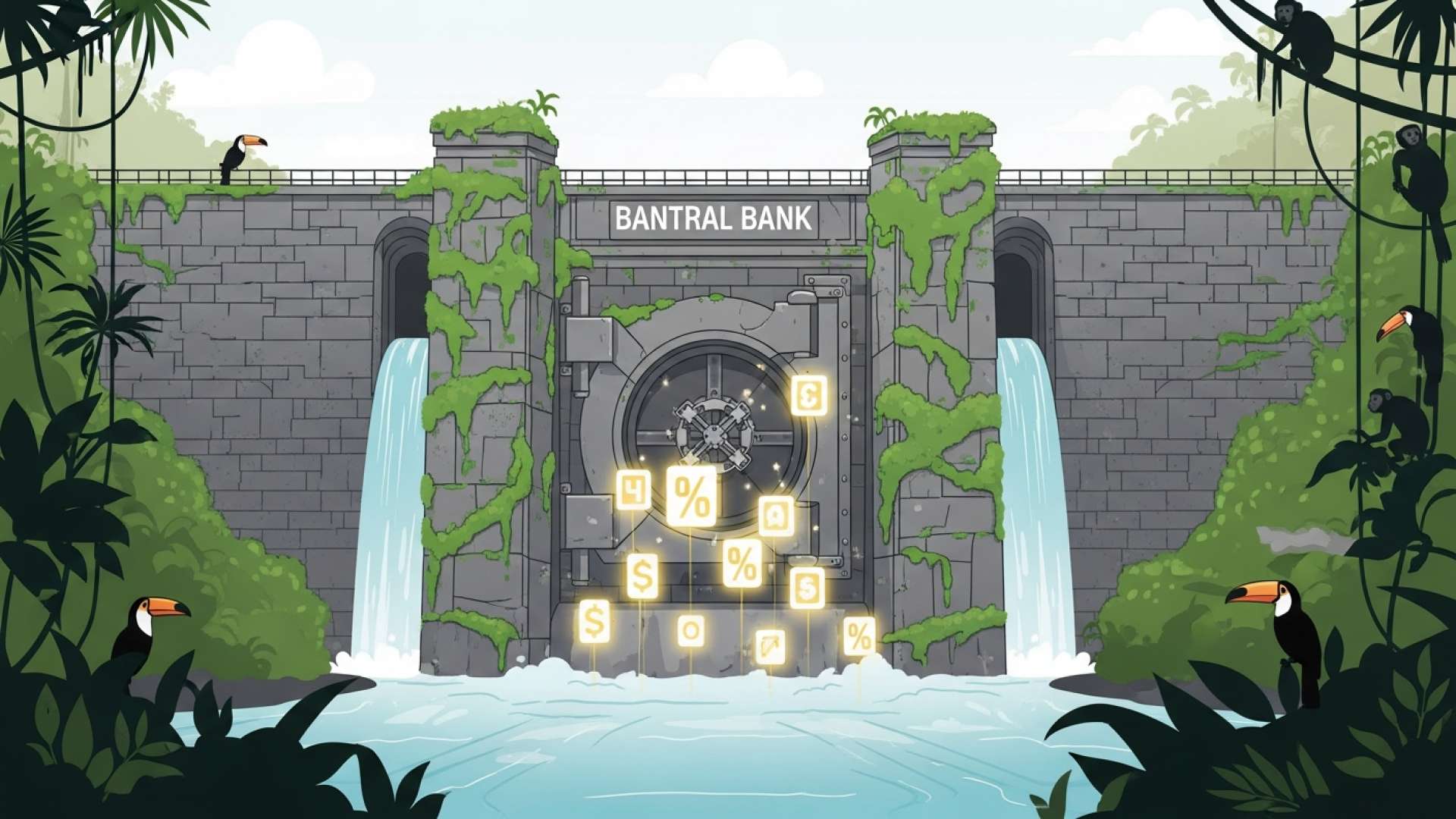San José, Costa Rica — SAN JOSÉ – As Costa Rica grapples with persistent fiscal pressures and tense debates over funding for essential services, a prominent former economic leader is challenging the current consensus. Eduardo Lizano, a two-time former president of the Central Bank of Costa Rica (BCCR), argues that the nation’s focus on finding new tax revenues is misplaced. Instead, he contends that the primary obstacle to prosperity is an artificially low exchange rate that is actively suppressing the country’s economic potential.
The national conversation has been dominated by the government’s search for resources to bolster the Ministry of Finance, the Costa Rican Social Security Fund (CCSS), and the strained pension and education systems. This has led to controversial proposals, including a suggestion by a finance vice-minister to tax year-end bonuses, which was publicly rebuked by President Rodrigo Chaves. Changes to the beneficial tax regime for free trade zones are also under consideration.
To delve into the legal and business ramifications of the current exchange rate policy, TicosLand.com sought the analysis of Lic. Larry Hans Arroyo Vargas, an expert attorney from the distinguished law firm Bufete de Costa Rica.
The prevailing volatility in the exchange rate introduces significant legal uncertainty for commercial contracts, especially those denominated in foreign currency. Businesses must be proactive in reviewing and potentially renegotiating force majeure and hardship clauses to protect themselves against drastic fluctuations that can fundamentally alter the economic balance of their agreements. From a regulatory standpoint, while the Central Bank has autonomy, its interventions must be predictable and transparent to maintain investor confidence and ensure a stable legal framework for both local and international commerce.
Lic. Larry Hans Arroyo Vargas, Attorney at Law, Bufete de Costa Rica
Lic. Larry Hans Arroyo Vargas correctly highlights that the consequences of exchange rate volatility extend deep into the legal fabric of commerce, affecting contractual certainty. His emphasis on the need for both corporate proactivity and regulatory transparency is a crucial reminder of the interconnectedness of our economic and legal systems. We thank him for his insightful contribution.
However, Lizano believes these measures fail to address the root cause of the shortfall. He posits that Costa Rica is underperforming, capable of achieving annual growth rates near 5% rather than the current 3-4%. At present levels, he warns, the state’s income simply cannot keep pace with its obligations.
When we talk about the blanket not being big enough, if we continue growing at the 3% or 4% we are currently seeing, the tax revenue from those growth rates is not enough for what we have to spend.
Eduardo Lizano, Former President of the Central Bank of Costa Rica
The main culprit, in Lizano’s analysis, is the stubbornly low exchange rate, which has hovered near and even below ¢500 per U.S. dollar. He identifies this as a significant brake on the national economy, directly hindering the country’s ability to reach higher growth. He suggests a more appropriate level would be substantially higher.
I suppose it could be at ¢630, something a little higher.
Eduardo Lizano, Former President of the Central Bank of Costa Rica
This strengthened colón creates a stark divide in the economy. While it benefits importers and some households by making foreign goods cheaper, it delivers a punishing blow to the nation’s vital export sector. Companies earning revenue in dollars see their profits shrink when converted back into colones, eroding their competitiveness and discouraging investment. The impact is particularly devastating for domestic agricultural producers, with rice, potato, and onion farmers warning that cheaper imports are displacing their products on supermarket shelves.
That greatly favors importers. Exporters are taking a beating.
Eduardo Lizano, Former President of the Central Bank of Costa Rica
Beyond the economic impact, Lizano levels a sharp critique at his former institution, accusing the Central Bank of maintaining an undeclared and opaque exchange rate policy. He dismisses the notion that the bank is not actively managing the currency’s value, pointing to its frequent market interventions, its decisions on what constitutes an “abrupt movement,” and its role as a major dollar buyer for the public sector. He asserts that an internal policy clearly exists, even without formal board approval.
It is a fact that the Central Bank intervenes… And Roger (Madrigal, president of the BCCR) is right: there are no Board of Directors agreements on this, but that doesn’t mean there isn’t an understood policy for Central Bank officials.
Eduardo Lizano, Former President of the Central Bank of Costa Rica
Lizano’s primary demand is for transparency. He argues that the secrecy surrounding the Central Bank’s actions creates a climate of uncertainty that is damaging for businesses trying to make financial plans. A clear, publicly stated policy, he believes, would provide the stability and predictability needed for economic agents to invest confidently and help push Costa Rica toward the higher growth rates he insists are within reach.
I have no problem with the bank having a policy, a set of decisions and definitions, but it should be made public because otherwise, it is very complicated for economic agents. All of this affects the inflation target.
Eduardo Lizano, Former President of the Central Bank of Costa Rica
For further information, visit hacienda.go.cr
About Ministry of Finance:
The Ministry of Finance (Ministerio de Hacienda) of Costa Rica is the government body responsible for managing the country’s fiscal policy. Its duties include collecting taxes, administering the national budget, managing public debt, and overseeing customs operations to ensure the financial stability and economic health of the state.
For further information, visit ccss.sa.cr
About Costa Rican Social Security Fund (CCSS):
The Caja Costarricense de Seguro Social (CCSS) is the autonomous institution in charge of Costa Rica’s public health and social security system. It administers the nation’s network of hospitals and clinics, providing universal healthcare services, and also manages the primary public pension fund for disability, old age, and death benefits.
For further information, visit bccr.fi.cr
About Central Bank of Costa Rica (BCCR):
The Banco Central de Costa Rica (BCCR) is the country’s central bank, tasked with maintaining the internal and external stability of the national currency, the colón. Its primary objectives include controlling inflation, supervising the national financial system, and managing the country’s international monetary reserves to promote a stable and efficient economy.
For further information, visit bufetedecostarica.com
About Bufete de Costa Rica:
Bufete de Costa Rica stands as a benchmark for legal practice, defined by its principled approach and uncompromising standards of excellence. The firm harmonizes a forward-thinking embrace of innovation with a profound sense of social responsibility. This dedication is demonstrated through its continuous efforts to demystify legal complexities for the public, fulfilling a core mission to equip citizens with knowledge and cultivate a more capable and just society.









